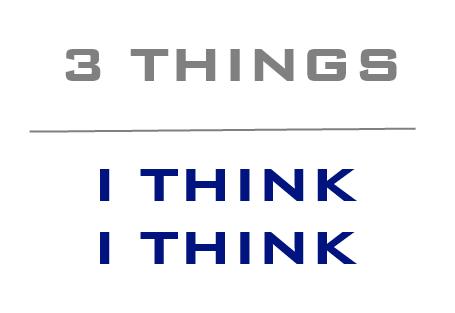Here are some things I think I am thinking about:
1) Hedge Funds aren’t stocks. Here’s a great piece by Cliff Asness on the improper comparison between stocks and hedge funds. Basically, Cliff is sick and tired of seeing hedge funds get compared to the S&P 500. And he’s right. The media does this regularly and it’s wrong at a very basic level. After all, hedge funds are highly diversified and are not limited to the equity markets. So it’s wrong to benchmark them to stocks when they own tons of instruments that will necessarily do worse than stocks for long periods of time.
That said, I do have a minor gripe – much of the blame for this falls on the shoulders of hedge funds who have repeatedly stated that they could provide stock-like returns with bond-like volatility. Some have even said they’d outperform stocks on a nominal basis. In fact, Warren Buffett took advantage of this stupidity when he made his famous bet with Protege Partners. I stated, on several occasions, that this was a colossal mistake by Protege. Not only were they allowing Buffett to establish an unfair benchmark, but they didn’t even adjust the returns for risk. There was virtually no way Protege could win that bet without a Great Depression style environment.
Anyhow, as I’ve said before, let’s all agree to stop comparing everything to the S&P 500.
2) Experience is overrated. Here’s a wonderful piece by Ben Carlson discussing how experience can be overrated on Wall Street. Basically, we are seeing this repeated trope about how there are many new young investors who have never experience a bear market. And because of that the claim is that these young investors will panic during the next downturn which will make the next downturn worse.
As Ben notes, this is mostly nonsense. First, on a dollar weighted basis, new young investors just don’t have that much money. But here’s the strange paradox of the “experienced investor”. While you might think that young investors are more prone to overreaction I think it’s exactly the opposite. You see, older investors have more money and more experience. But they also have less time. In other words, they have less certainty over what their assets will look like in the future. This makes them more prone to overreaction because they can’t afford to see their portfolios go through big downturns.
Anyhow, go read Ben’s piece. It’s a good one.
3) More Trump Tweets. So, Donald Trump apparently knew about the job’s report before it was made public and then went on Twitter to tell the world how excited he was about it before it became public. Man, this guy has zero impulse control.
But is it a big deal? Yes and no. The President always gets this information beforehand and is required to keep it private. That has been the case since the Nixon administration. So, the President really shouldn’t be disclosing this sort of information. Of course, if he didn’t act on the information then it’s not technically insider trading. But Federal laws prohibit Executive Branch officials from discussing important economic news before, and 1 hour after, its official release. So it looks like he broke the law here. But it seems like he breaks lots of norms and rules these days. And given the gray area within which this President operates I suspect this will be forgotten in no time. As Nixon said, “When the President does it, that means that it is not illegal”. That sounds about right in this case, even if it’s technically wrong….
Mr. Roche is the Founder and Chief Investment Officer of Discipline Funds.Discipline Funds is a low fee financial advisory firm with a focus on helping people be more disciplined with their finances.
He is also the author of Pragmatic Capitalism: What Every Investor Needs to Understand About Money and Finance, Understanding the Modern Monetary System and Understanding Modern Portfolio Construction.

